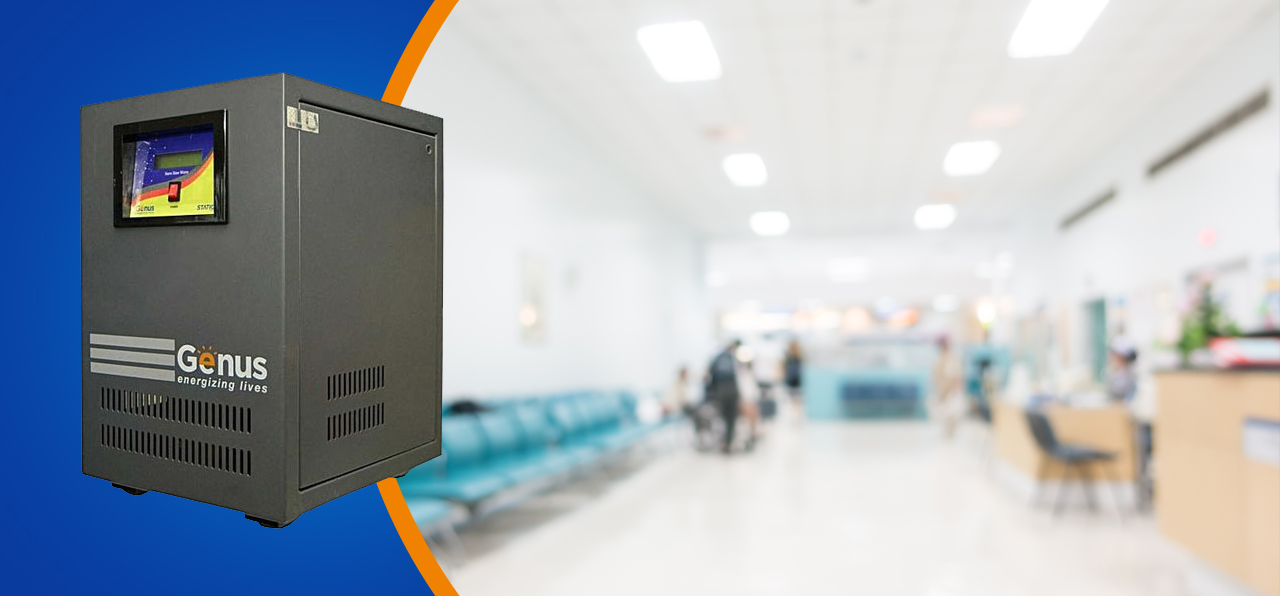
We all are well aware of the fact that many parts of India still have the problem of unreliable electricity supply. This is especially true for rural areas and small towns. However, you cannot allow power cuts to disrupt your daily life and work. This is where inverters come to our rescue offering the much required power backup when the grid supply fails. An inverter can run everything from fans, lights to other household appliances, depending on its type and capacity. However, you need to understand the difference between two main types of inverters available in the market. So we are here with the top reasons why you should choose a sine wave inverter over a normal inverter.
While both sine wave and square wave inverters convert DC (from batteries) into AC to power your appliances, there is a significant difference in the output quality, long-term performance and efficiency.
Sine wave vs square wave inverters- The basics
Let’s explore why a sine wave inverter is a safer, smarter and more future-ready choice compared to the normal inverter:
Square wave– This is the normal inverter that converts DC to AC but produces a block-like output waveform. This results in more electrical noise, distortion and higher stress on the appliances.
Sine wave– They produce output AC power that closely mimics grid electricity. This waveform is stable, smoother and ideal for all devices, even the sensitive ones.
So now let’s find out why you should choose a sine wave inverter and not the normal square wave one.
Reasons why sine wave inverters are better:
Stable and clean output:
Sine wave inverters provide an output waveform that is almost identical to the grid supply from utility with minimal harmonic distortion. This makes them safe even for sensitive devices like refrigerators, ACs, TVs, computers etc. On the other hand, square wave inverters can cause glitches, flickering and even long-term damage with their distorted output.
Reduced power loss with higher efficiency:
The modern sine wave inverters operate at 90-95% efficiency that reduces energy wastage and hence lower the electricity bills. Even the mid-range sine wave models (75-80% efficiency) outperform the square wave inverters. The best sine wave inverters like Genus Winner inverter provide longer backup hours and better performance with lower conversion losses.
Safe for the inductive loads:
Appliances with motors or coils- like washing machines, pumps or ceiling fans, perform better on sine wave inverters. Square wave inverters force such appliances to draw more current that results in overheating, reduced lifespan and higher energy bills. Sine wave inverters protect these appliances, enhance durability and are therefore a better choice.
Also Read: Good Reasons To Choose a Pure Sine Wave Inverter
Silent performance: Free from noises and glitches
Due to the block type output waveform, square wave inverters produce annoying humming and buzzing sound in fans and lights. They may also lead to glitches and errors in printers and on computer screens. Sine wave inverters deliver quiet and glitch-free power that ensures comfort and safety.
Faster charging feature:
Long and frequent power cuts demand inverters with quick charging features. Compared to square wave inverters, sine wave inverters charge faster to ensure that you are always ready for the next outage. This feature is very essential for uninterrupted operations, especially in the commercial spaces like hospitals, hotels, offices, labs etc.
Cost advantage and long term value:
Square wave inverters might look cheaper upfront but sine wave inverters provide better ROI in the long run. They last longer, protect appliances from damage, and require fewer repairs. This results in significant savings on maintenance and replacements over time.
Takeaway:
So, by now, you must have realized why investing in a sine wave inverter makes more sense than a square wave inverter.
A sine wave inverter like Genus Winner is the way to go if you want efficient, safe and future-ready backup power. It not only powers your appliances reliably but also helps you save money, reduce noise and ensure long-term durability.
FAQs on sine wave inverters:
Q.1. What is the main difference between a sine wave inverter and square wave inverter?
Ans. The smooth, grid-like power from a sine wave inverter is safe even for the sensitive appliances while the distorted power from square wave inverters may harm the appliances and result in damage.
Q.2. Do sine wave inverters consume more electricity?
Ans. No. In fact sine wave inverters reduce energy losses and are therefore more efficient resulting in longer backup and lower bills.
Q.3. Can sine wave inverters run heavy appliances like ACs or refrigerators?
Ans. Yes, with the right capacity, sine wave inverters are able to safely run heavy loads unlike square wave unlike square wave that might damage such appliances.
Q.4. Are sine wave inverters compatible with solar panels?
Ans. The modern sine wave inverters are compatible with solar panels and can work with the rooftop solar systems that make them a sustainable choice for those who are looking for a solar ready solution.
Q.5. Which brand should I choose in India for sine wave inverters?
Ans. Trusted brands like Genus Innovation offer sine wave inverters that are built on advanced technology delivering efficiency, reliable backup and eco-friendly performance for both homes and businesses.
